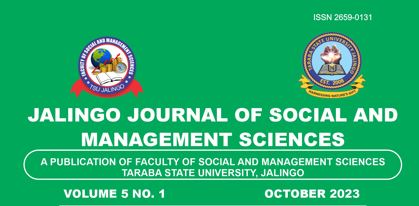Assessing the Nature and Trends of Commonly Abuse Substance and Crime Among Youths in Nigeria
Keywords:
Substance, Substance Abuse, Crime, Nigeria YouthsAbstract
There has been a growing concern on the increase in the rate of substance abuse among young people in Nigeria and this has led to a changing behaviour among addicts which often leads to increase in crime rate. Hence, this study assesses the nature and trend of substance abuse and crime among youth in Nigeria. The study is a theoretical discourse hence it adopts a qualitative research approach and relies on secondary data sources obtained from journal articles, Government publications, books, as well as web-based studies on substance abuse and crime in Nigeria. It is guided by Paul Goldstein psychopharmacological model which best highlight the nexus of substance abuse and crime. The findings revealed that the abuse of substance is common according to overwhelming percent of the respondents among which are cocaine, alcohol, Indian hemp, codeine syrup, and shisha. Findings also revealed a new trend in substance abuse which include; mixture of cough syrups and soft drinks or juice, others engage in inhalation of petrol, gasoline, aerosol, nail polish removal, some engage in smoking lizard dung, others in inhalation of bio gas, pit toilet/soak away and gutter fumes, some are chewing, and/or cooking food with cannabis as vegetable or tea, mixture of weed, granulated tramadol/tramol with shisha flavours, smoking natural leaves: pawpaw, bamboo growth, mushroom and injection of substance. Also, findings revealed that substance abuse leads to violent crimes such as violent assault, armed robbery, murder, rape and domestic violence. This study therefore, recommends the need to encourage family education on drugs and substance as a core for social organization so as to reduce the rate of substance abuse among youths. Considering the nexus between substance abuse and crime, it is imperative for the government and other relevant authorities to establish a criminal justice drug programme which will be vested with the responsibility of detoxification, education and vocational training of offenders. It will also provide pharmacotherapy and psychotherapy to addicts who are also criminal.

Downloads
Published
Issue
Section
License
Copyright (c) 2023 JALINGO JOURNAL OF SOCIAL AND MANAGEMENT SCIENCES

This work is licensed under a Creative Commons Attribution-NonCommercial 4.0 International License.
